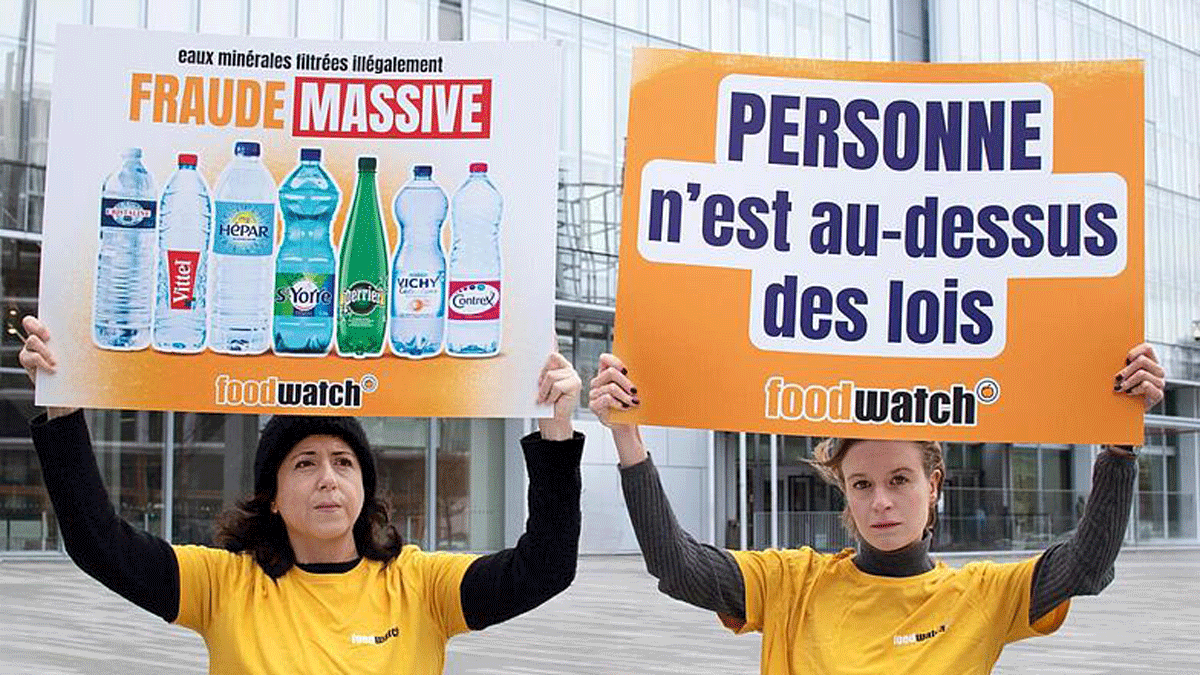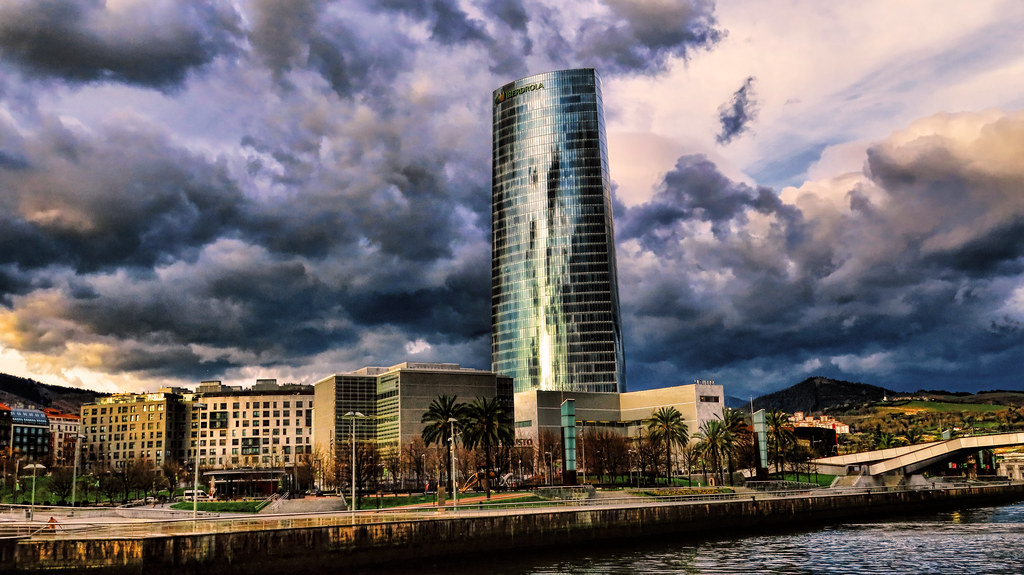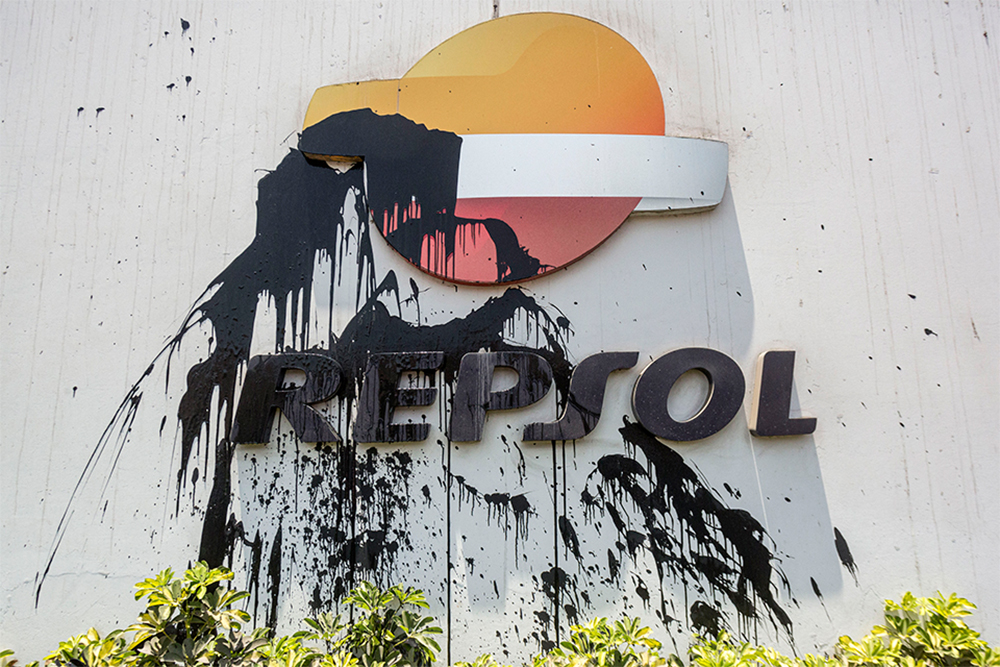“We want to create a monitoring centre for the impacts of Basque transnational companies”
- Euskal Herria proposes to create a Basque centre for transnational and human rights. platforms. You're looking for adhesions to get a bill. Júlia Martí Comas (Barcelona, Catalan Countries, 1989), PhD in development studies and researcher at the Observatory of Multinationals in Latin America (OMAL), has worked hard on the need and development of the center.

What do we talk about when we say that multinational companies violate human rights?
We are talking about systematic practice. There are violations of all kinds of rights: civil, political, economic and cultural, even against women, workers... These companies act with complete impunity when implementing giant projects in other countries. We are talking about the murders of the defenders of the land, the pollution of rivers and the environment, the obligation of the whole community to leave their territories…
Is there no tool to control business activity?
No, there is no legal mechanism to control or punish the impacts of transnational corporations. Within the European Union there have been several attempts to enforce human rights, but they have not been taken into account. In Catalonia they have achieved a milestone; Parliament will soon begin to discuss the draft law establishing the centre for transnational and human rights; we want to follow the same path.
To represent the dimension of business impunity, it is necessary to know that States can be sued by private courts.
The asymmetry is enormous. Transnational corporations can sue States and make millions, but not the other way round, for human rights violations. There is no way to balance this balance. Because there is an international legal regime that protects the interests of big business, a kind of privatised justice, based on trade agreements.
What is the purpose of the concept of Corporate Social Responsibility and the appropriate attention that has been created recently?
These are uncontrolled voluntary principles for companies to self-regulate. Corporate Social Responsibility was an attempt to clean the face of transnational corporations in the 1970s and 1980s. It has been proved that it has done nothing. The same is happening now with the proposal for a law, which is a good thing, because it only obliges us to have analysis reports as a result of the actions. There will always be “friends” advisers who accept such reports. Human rights must be demanded, not voluntarily.
What would then be the role of transnational corporations and the Basque centre for human rights?
We want to create a monitoring point for the impacts of Basque transnational companies. The proposal is to set  up an independent public inspection body. It would have its own legal personality to receive and analyse complaints. Among its functions would be to request accounts, carry out public inspections and propose sanctions against companies that violate international human rights law. Among other things, the centre may allow public administrations not to hire or invest in them. It would open new doors, publish or municipalize sectors, policies to support the solidarity economy…
up an independent public inspection body. It would have its own legal personality to receive and analyse complaints. Among its functions would be to request accounts, carry out public inspections and propose sanctions against companies that violate international human rights law. Among other things, the centre may allow public administrations not to hire or invest in them. It would open new doors, publish or municipalize sectors, policies to support the solidarity economy…
Meanwhile, more and more budgets are being allocated to the internationalisation of Basque companies.
Although they mean that Basque companies are different and respect human rights, that is not the case. Iberdrola, CAF, Petronor, Gestamp… we can make a comprehensive list of its impacts in countries such as Mexico, Peru, Palestine… Many of them take advantage of Basque taxation. On other occasions, the Basque Government is a shareholder. Most are contracted by the public administration. The profits of big business are taking precedence over welfare, and they are being given a red carpet for internationalisation without regard to human rights.
Foreign multinationals also have consequences for us…
It's the other side of the coin. Digital economy giants like Amazon come to our destination, acquiring our space and the industrial and commercial sector, among others, while infringing their labor rights. This center, which proposes EH Capital Planto!, would have a bilateral role and its objective is to be able to provide answers to these conclusions.
To what extent can the center affect?
It's a concrete patch. But there is also a way of saying that it is sufficient and that it is time to take concrete action, that we no longer accept the position of the Basque administrations. They have in place programmes for the protection of human rights defenders, strong international cooperation … but that is no use unless prevention is worked out. Control of activities is possible if there is political will.
Planting corporate power
“I have been analysing and publicising the impacts of transnational corporations for years. The thesis is clear: they systematically violate human rights. The need to build bridges between the countries of origin and those affected by these companies is urgent, because resistance is possible, especially if the issue is addressed from an eco-feminist perspective. Because in addition to environmental damage, it is women who suffer the consequences of corporate power.”
Ur kontaminatua ur mineral eta ur natural gisa saltzen aritu dira urte luzeetan Nestlé eta Sources Alma multinazional frantsesak. Legez kanpoko filtrazioak, iturburuko ura txorrotakoarekin nahasi izana... kontsumitzaileen osagarria bigarren mailan jarri eta bere interes... [+]
Frankismoa ez zela 1975ean amaitu diktadoreak ohean azken hatsa eman zuenean, hori badakigu. Erregimenaren haziek bizirik iraun zuten poliziaren tortura ziegetan, justizia auzitegien sumarioetan eta militarren zein politikarien deklarazio kolpistetan –Aznarrek azkenaldian... [+]

























